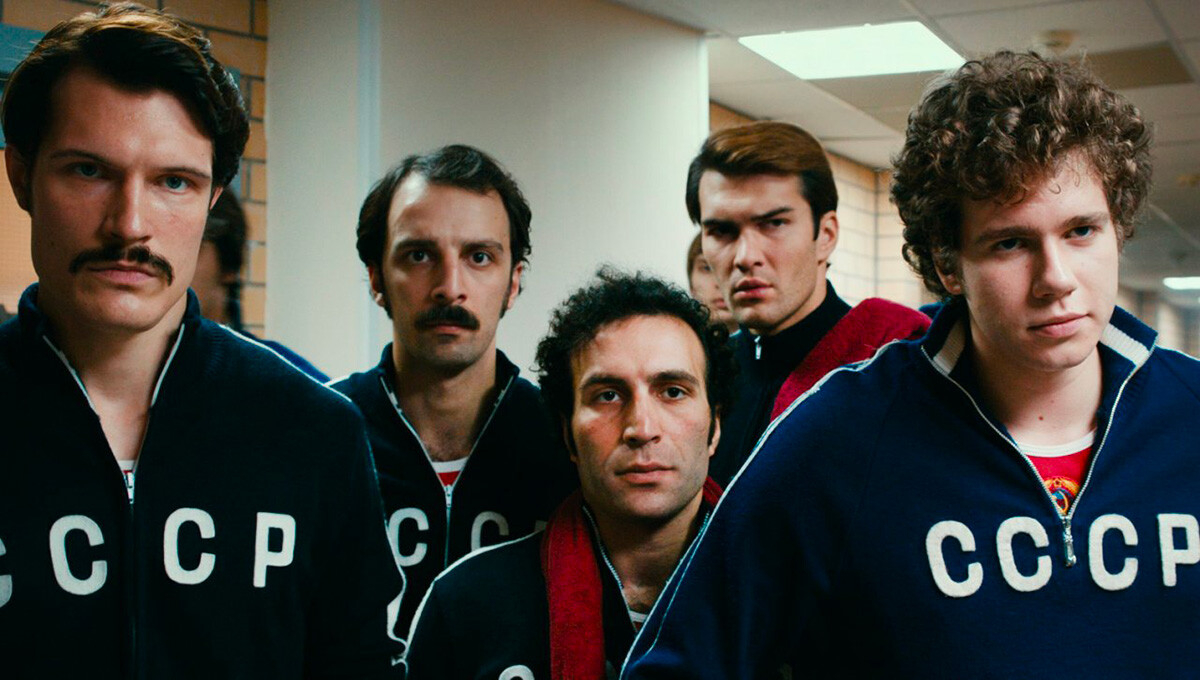
This movie tells the story of one of the most dramatic moments in Soviet sporting history - the encounter between the Soviet and U.S. national basketball teams at the 1972 Olympics in Munich. The Americans had been regarded as invincible for the past 36 years: The clash between the two sides in the final of the tournament was decided in the last three seconds of the match. Basketball is not the most cinematic of sports, but 'Going Vertical' portrays it in such a way as to make one literally want to go and learn to shoot a ball through a hoop!
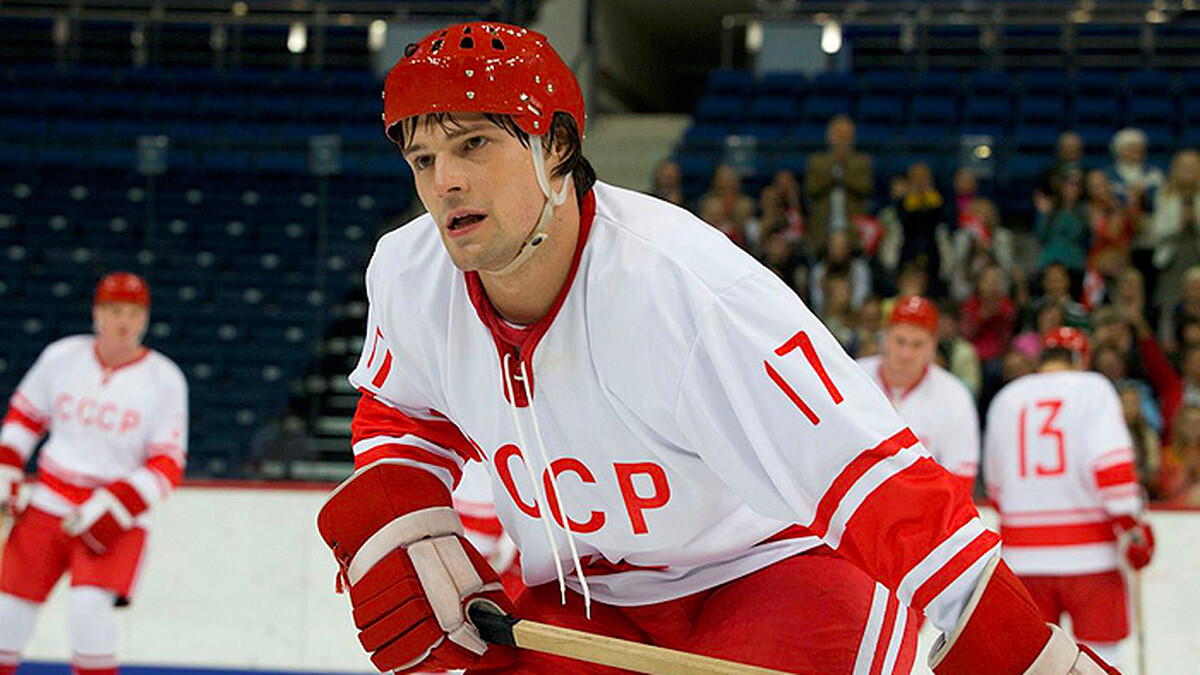
This biopic about eight-time world champion ice hockey star Valery Kharlamov. The movie shows his rise to fame, first as a forward for CSKA Moscow and then for the USSR national team. The climax is the first in a series of matches between the Soviet and Canadian ice hockey teams. Sport was not just a question of putting in winning performances, but also a crucial element in politics: This movie is a graphic demonstration of this.
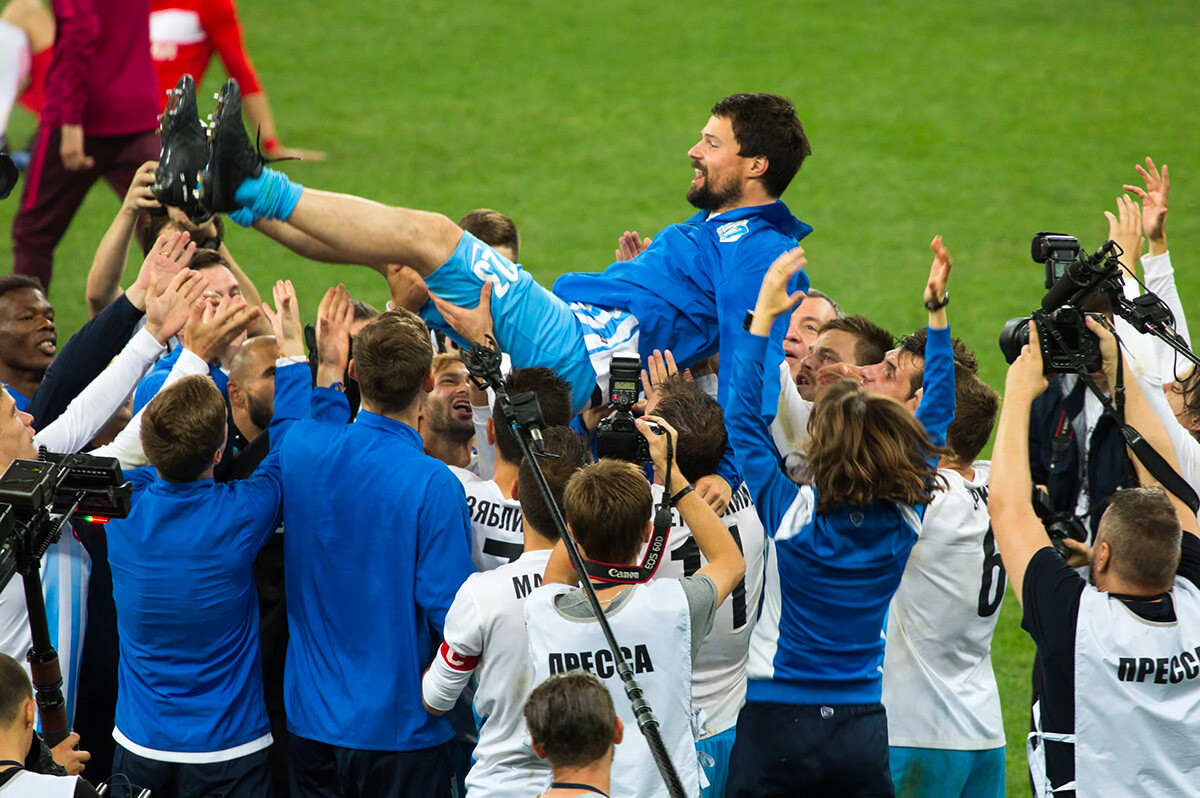
The plot revolves around an ambitious player in the Russian national soccer team named Yury Stoleshnikov, who is disqualified for a year and, so, goes to work as a coach for a second-tier club. Its players have neither motivation nor the will to win, but the lead protagonist has all these qualities in ample measure. He takes Meteor FC to victory in the Russia Cup and, in the finale, the players of the little-known team are shown stepping onto the field against London’s Chelsea FC. Like a good soccer match, the action-packed story does not allow viewers to relax for a single moment.
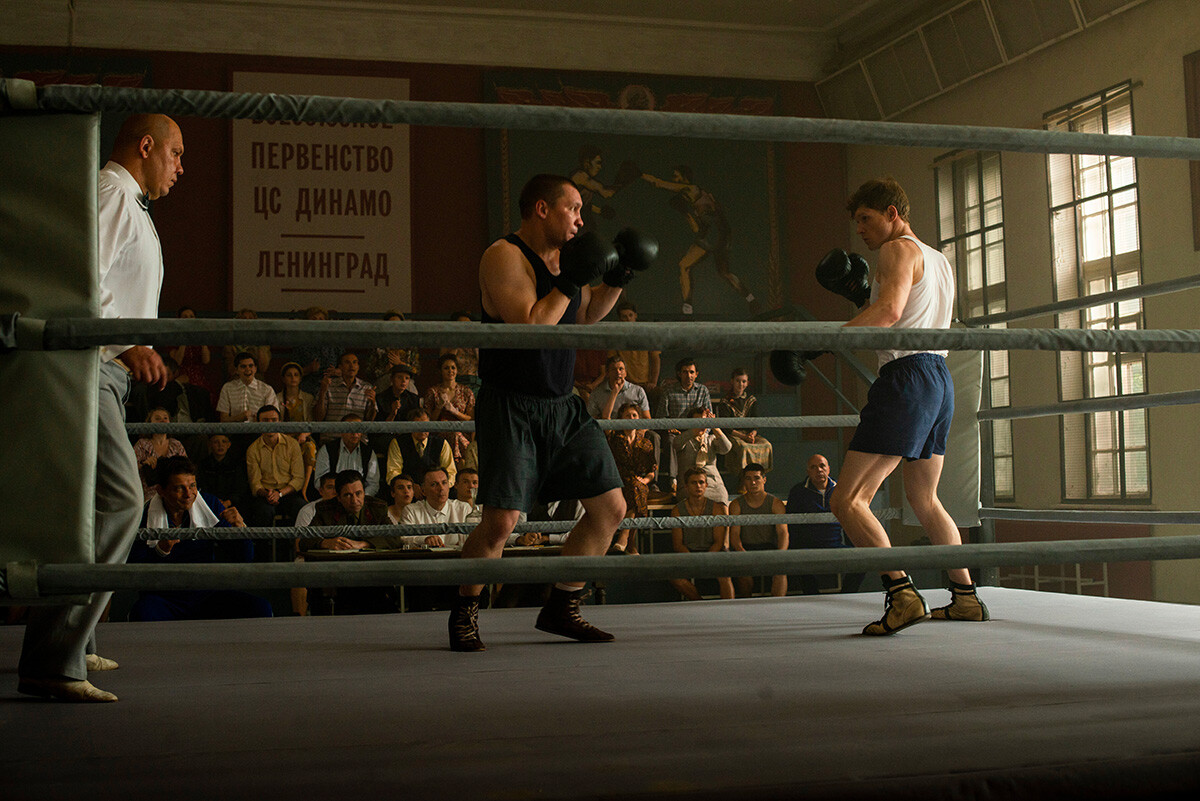
A boxer by the name of Valery Popenchenko was the Soviet Union's first holder of the ‘Val Barker Trophy’ (awarded to boxers who demonstrate the most effective and technically outstanding skills at the Olympic Games). Of his 213 matches, he won an amazing 200. He was dubbed "Mister Knockout' by foreign journalists, as this was the way he frequently brought fights to an early conclusion. The feature film, which shows how the one-time navy cadet grows into an unrivaled athlete, is well fleshed out: The action is not confined to the gym and the ring, but there are also sparring sessions on the deck of a ship, reminiscences of childhood and - as is only to be expected - behind-the-scenes intrigues.

Yet another biographical movie, this time about the cross-country skier Yelena Välbe. It conforms to all the rules of mainstream sports movies: a gifted child, a trainer who notices her abilities and the harsh natural surroundings of provincial Murmansk, where the heroine grows up. She herself seems to be chiseled from stone. Only the scene in which she screams at the top of her lungs in the middle of a snow-covered wood serves as a reminder of the unbelievable effort that the life of a successful athlete entails.
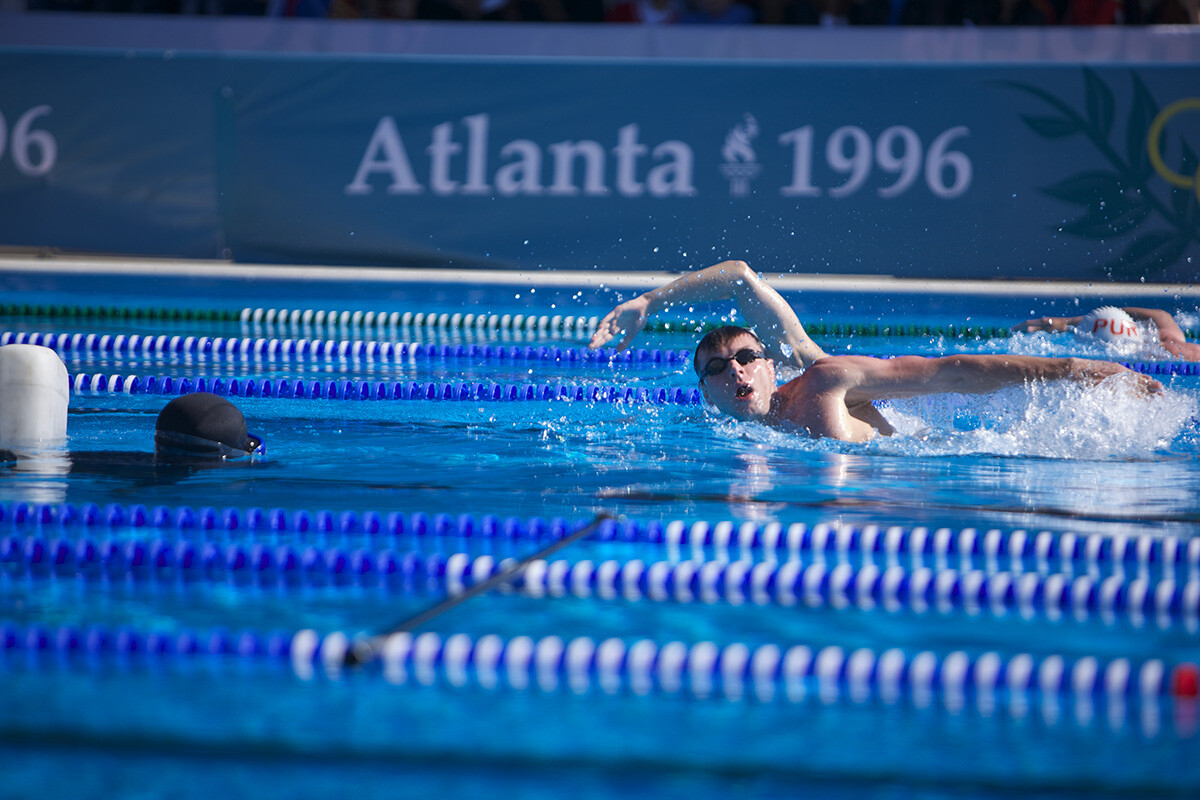
The stories of three Russian Olympic champions - swimmer Alexander Popov, wrestler Alexander Karelin and gymnast Svetlana Khorkina. The movie has everything: the long road to success and, at the end of it, the merited gold medal, all according to the conventions of the genre. Although their triumphs lie in the fairly recent past, the movie affords a glimpse into the inner lives of the athletes profiled. They were played by Sergei Bondarchuk Jr., Yevgeny Pronin and Kristina Asmus, respectively.
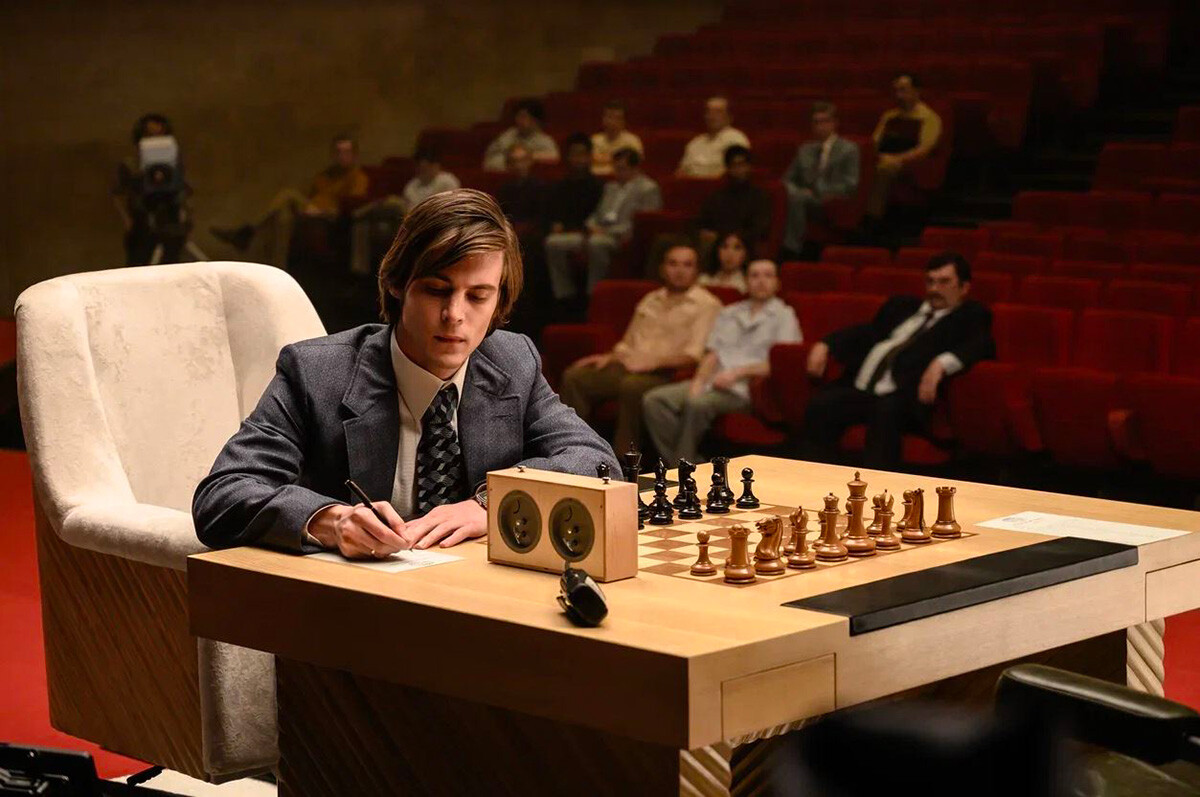
This movie cannot be described as anything other than a political clash on a chess board. It is loosely based on the real story of the duel between Anatoly Karpov and Viktor Korchnoi, the Soviet chess player who applied for political asylum in Holland in 1976. On the one hand, it was a clash between the Soviet bureaucratic system and someone who had dared to flee it. On the other, it was a battle between two superlative players - a battle, as one of the protagonists puts it, "to bloody pulp". The movie works both as a piece of drama and as a cinematic postcard from the late 1970s - it can be viewed as an illustration of those times or one can try to see it as a drama of two talented individuals.
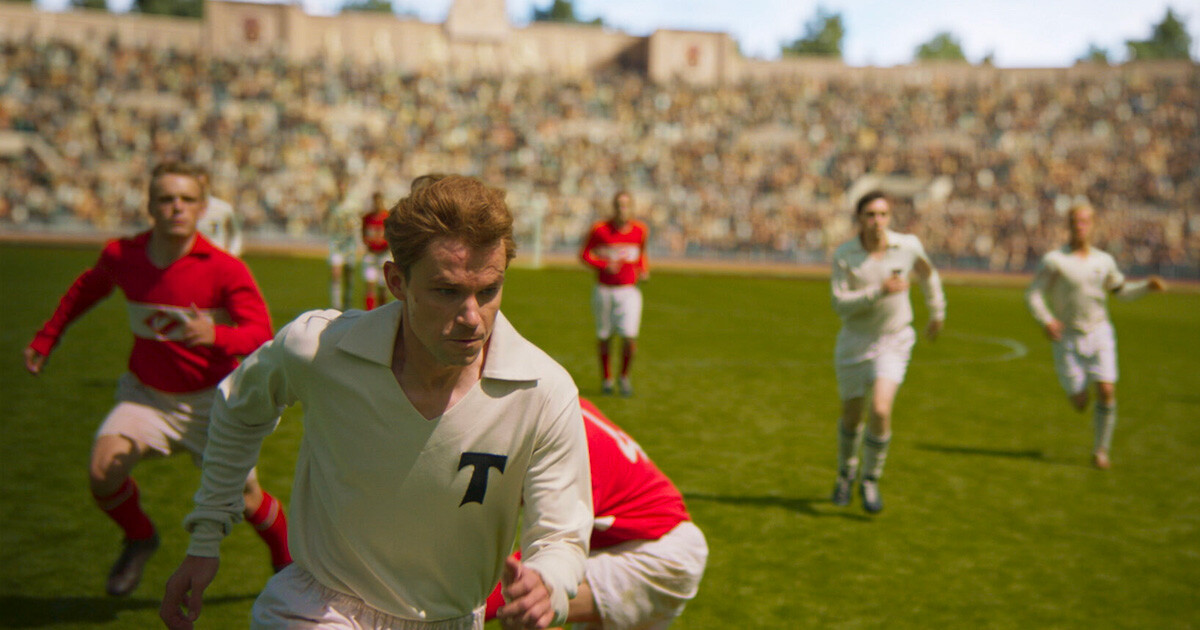
The story of Eduard Streltsov, the principal enfant terrible and genius of Soviet football. At the peak of his career, the "Russian Pelé" was charged with sexual assault and given a 12-year sentence. However, he managed to make a come-back to sport: He was adored by football fans, who were ready to take the stadium apart if their idol was not let onto the field. The biography of the soccer player paints a broad canvas of an individual who did not fit into any conventional mold and remains a legend.
Dear readers,
Our website and social media accounts are under threat of being restricted or banned, due to the current circumstances. So, to keep up with our latest content, simply do the following:
If using any of Russia Beyond's content, partly or in full, always provide an active hyperlink to the original material.
Subscribe
to our newsletter!
Get the week's best stories straight to your inbox